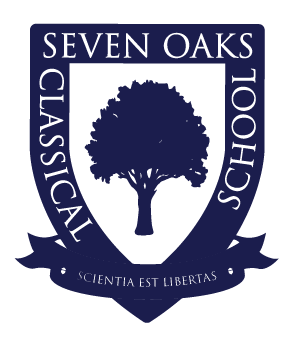
Classical Education
"It is the mark of an educated mind to be able to entertain a thought without accepting it."
-Aristotle
Why Classical Education?
Training Minds
Classical education is traditional in the ends it pursues, in the materials it uses, and in the methods it employs. In other words, it uses proven techniques—techniques that educational research and cognitive science have affirmed.
A classical education delivers real content, sensibly organized, from an early age. A priority is put on really learning, where active forms of learning helps foundational knowledge enter the long-term memory. This content-rich curriculum includes classic literature read cover to cover. It includes stories and mathematical proofs, and scientific experiments and art and music that feed the imagination, foster conversation and friendship, and that helps students understand human nature and the natural world.
Improving Hearts
A classical education is an education aimed at human excellence. The liberal arts and sciences are directed to the formation of free and happy human beings, capable of reasoning well and inclined to noble ends. To this end, classical education emphasizes the need for good habits and seeks to orient students’ minds and affections to the true, the beautiful, and the good.
Classical education places particular emphasis on the relationship between the teacher and the student—between one with greater experience and expertise and one who stands to receive, not passively, but through an active participation in the learning process.
“It makes no small difference, then, whether we form habits of one kind or of another from our very youth; it makes a very great difference, or rather all the difference.”
- Aristotle
Further Reading on Classical Education
Article by Seven Oaks Headmaster
What is Classical Education?, Dr. Stephen Shipp, Headmaster at Seven Oaks Classical School
Books
Classical Education: The Movement Sweeping America, by Gene Edward Veith, Jr. and Andrew Kern
The Making of Americans: Democracy and Our Schools, by E. D. Hirsch, Jr.
Cultural Literacy, by E. D. Hirsch, Jr.
The Great Tradition: Classic Readings On What It Means To Be An Educated Human Being, edited by Richard Gamble
The Seven Laws of Teaching, by John Milton Gregory
Why Johnny Can’t Tell Right from Wrong: and What We Can Do About It, by William Kilpatrick
Additional Readings on Classical Education
What is Classical Education?, Dr. Terrence Moore, Principal at Atlanta Classical Academy
What is Classical Education?, Dr. Susan Wise Bauer, Writer and Historian
Why I Teach Plato to Plumbers, Scott Samuelson, Philosophy Professor at Kirkwood Community College in Cedar Rapids, Iowa
Silicon Valley Needs Humanities Students, Vivek Wadhwa, Fellow at the Rock Center for Corporate Governance at Stanford University
The Lost Tools of Learning, Dorothy Sayers
Core Knowledge: How Do We Know This Works?, E.D. Hirsch, Jr.
Reading Comprehension Requires Knowledge – of Words and the World, E.D. Hirsch, Jr.


